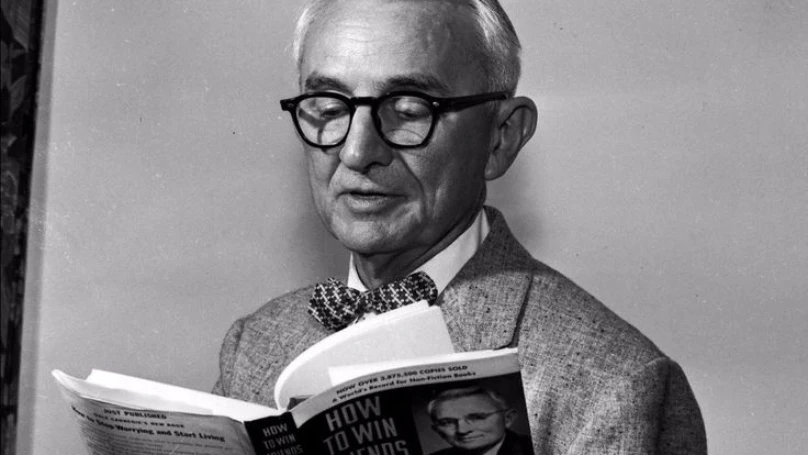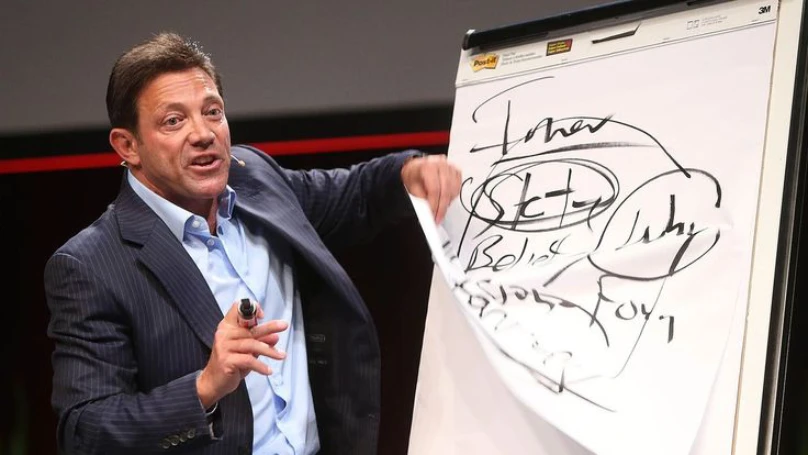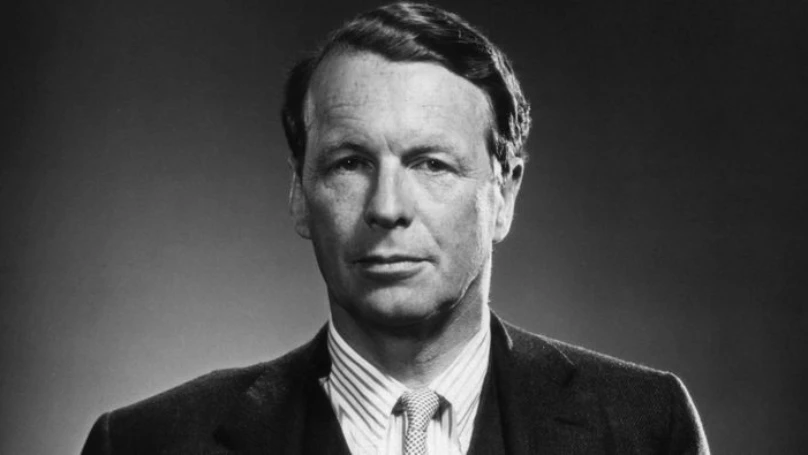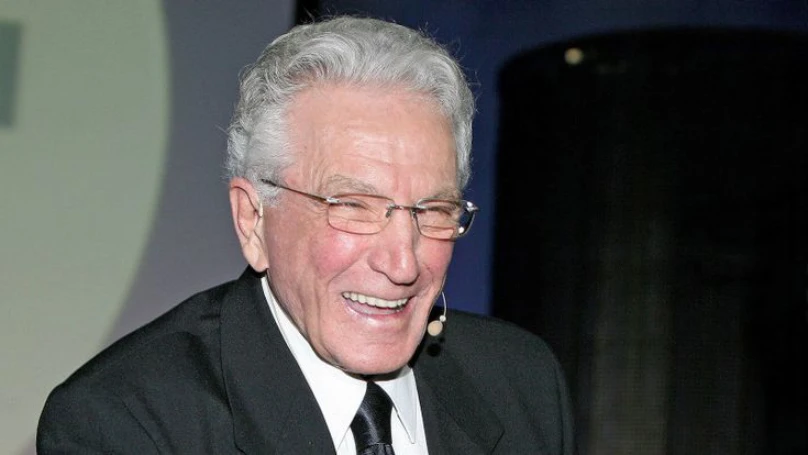When I want to learn or do a new thing, the first thing I do is to look for someone who is successful in what I want to start. I think that this way, I can get a good insight from their experiences to make my own endeavors freer from risks and be more effective after all, if someone had previously shown you the way, why not take advantage of their insights.
Have you ever wondered what makes top salespeople different? Come with us while we investigate the lives and careers of ten of the best in the business. Explore the tactics and the mental approaches that have motivated them to succeed.
Dale Carnegie
Dale Carnegie was born on November 24, 1888, in Maryville, Missouri in a small house in which he lived in poverty. He was a salesman who moved from place to place before teaching speaking skills at the YMCA. His pioneer self-help book, How to Win Friends and Influence People, became a bestseller for him bringing him national recognition and thus he was able to send the Dale Carnegie Institute to various countries around the world. He passed away in 1955 in Queens, NY.
The best lessons from Dale Carnegie
Dale Carnegie is considered to be one of the forerunners in communication and personal development. In our lives, our ability to convey thoughts and show empathy and respect is one of his principles. These morals are most necessary for personal growth.
- Be the king of conversation and the lord of listening.
- Believe in your vision. Seek opportunity in failure.
- Love what you do and do what you love.
- Seek to learn and expand your soul.

Jordan Belfort
Jordan Belfort was a born salesman even in those early years, running a meat and seafood business in the 1980s. After that, he started his own stock-selling business in 1987. He was already running his investment operation, Stratton Oakmont, which was established in 1989. The company made millions of dollars by deceiving its investors. The Securities Exchange Commission started the process of getting the company back on track in 1992. In 1999, Belfort entered a plea of guilty to securities fraud and money laundering. He received a sentence of four years in prison in 2003, but actually, he was imprisoned only for 22 months. Belfort released his first memoir, The Wolf of Wall Street, in 2008. The next year, he published Catching the Wolf of Wall Street.
The best lessons from Jordan Belfort
The Wolf of Wall Street records Jordan’s journey in cinema. In other words, this movie does not only narrate the story of a young man who fulfills his dreams but it also portrays the emergence of a sales leader along with the movie.
Here are the sales lessons that you can learn from the movie The Wolf of Wall Street:
- Have a simple sales strategy
- Focus on learning by doing
- Find your niche and master selling it
- Have clear goals and targets
- Look for potential more than experience
- Never let your team’s motivation die
- Find a problem and offer a solution
“Jordan: ‘Brad, demonstrate how it’s done. Sell me that pen.'”
Brad: “Why don’t you do me a favor and write your name down on that napkin for me.”
Jordan: “I don’t have a pen.”
Brad: “Exactly! Supply and demand, my friend!”
- Do not quit during a hard time
- Build and foster customer relationships
- A good salesperson can sell anything
- Incentivize your staff
- Know your team like family
- Confidence is the key
- Watch, learn, and nail your sales goals


David Ogilvy : Art of copywriting
David Mackenzie Ogilvy was born on June 23, 1911 to an Anglo-Irish mother and a Scottish father.
David’s father often spoke Gaelic and had two jobs at the same time, a classical scholar and a stockbroker. While he worked very hard, they struggled especially financially, and as a result, David went to St. Cyprian’s for less.
At thirteen, David’s exceptional abilities earned him a scholarship to Fettes College in 1929. David tried again for a scholarship to Christchurch, Oxford in 1929 and once again used his skills and talents.
Best Lessons from the legend of copywriting
Everyone recognizes David as the father of advertising and a creative marketer.
The tips that David said can help any marketer to use them.
- Do your homework
”There is no substitute for homework. The more you know about a product, the more likely you are to come up with a big idea for selling it.”
- Focus on benefits
”Advertising which promises no benefit to the consumer doesn’t sell, yet the majority of campaigns contain no promise whatever.”
- Write compelling headlines
”Your headline should promise a benefit, or deliver news, or offer a service, or tell a significant story, or recognize a problem, or quote a satisfied customer.”
- Write lengthy and informative copy
”Long copy sells more than short copy, particularly when you are asking the reader to spend a lot of money. Only amateurs use short copy.”
- Grab attention to your introductory paragraph
”If you want your long copy to be read, you had better write it well. In particular, your first paragraph should be a grabber. You won’t hold many readers if you begin with a mushy statement of the obvious, like this one in an ad for a vacation resort: ‘Going on vacation is a pleasure to which everyone looks forward.”

Hillary Hinton Ziglar
From Childhood Nickname to Global Motivational Icon: Zig Ziglar
Hillary Hinton Ziglar, a name you may not have heard much, but you often remember him as Zig Ziglar. A motivational speaker who is very popular among people. Zig Ziglar has performed in many countries and has many fans.
From being born in Alabama in 1926 to international acclaim with just a simple childhood nickname in 1930s Mississippi, the journey of Ziglar is one great example of human potential.
Resilience in the Face of Hardship:
Ziglar encountered significant adversity while growing up, reflecting on the death of his father and sister at an early age. Neither event defined his life but were just a part of who he was becoming. These blemishes on his character conditioned him to be resilient to in change in either his early life or later life.
A definitive starting point:
Ziglar’s professional career started a lifelong journey toward success in sales and quickly became a definition of a successful individual. He was simply inspired by the notion of connecting with people and positively inspiring them to achieve their dreams and goals. This connection became the chosen profession for Ziglar as a motivational speaker.
The legacy of inspiration:
Ziglar has written many best-selling books and has inspired millions of lives across multiple generations with his seminars and speeches. His message of hope, perseverance, and positive thinking will continue to build community havuration across generations.
Zig Ziglar best books
- Secrets of Closing the Sale
- See You at the Top
- Born to Win
- Top Performance
- Ziglar on Selling
best lessons from Zig Ziglar
The points and instructions that Zig Ziglar shared in his speeches and books by no means end up outdated; he usually had attractive speeches full of humor and experience. Below are some quotes and recommendations from this character:
- True success is found in helping others succeed.
“You can have everything in life you want, if you will just help other people get what they want.”
- “You don’t have to be great to start, but you have to start to be great.”
- Failure is just a lesson on the journey of life.
- “Attitude, not aptitude, determines altitude.”

Joe Girard
Joe Girard a name intermingled with the world record in car sales. How does one man manage to sell over 13,000 cars in a year, defying the standards of the industry? In this article, we reveal the unusual strategies and methods that were put into place by Girard to become one of the most successful salespeople in history.
Key Lessons from Joe Girad
- Experience Over Theory:
Practical experience in sales is more valuable than theoretical knowledge.
- Personal Responsibility:
Taking ownership of one’s actions and results is crucial for success.
- Continuous Self-Improvement:
Always seek opportunities to learn and grow in your sales skills.
- Overcoming Challenges:
Difficulties (e.g., stuttering, challenging upbringing) can be overcome with determination.
- Building Confidence:
Confidence is essential; believe in yourself and your abilities.
- Rejection is Part of the Process:
Accept rejection as a natural part of sales and do not let it diminish your self-worth.
- Active Listening:
Truly listen to customers to understand their needs and tailor your approach.
- Empathy in Sales:
Connect with customers on an emotional level to build trust and rapport.

conclusion
The art of selling goes beyond mere transactions. These principles include communication, empathy and flexibility, which are represented by symbolic sales figures.
Everything from Dale Carnegie’s emphasis on effective listening and personal development to Jordan Belfort’s simple and immediate strategies. The insights from these renowned sales professionals serve as important guidelines.
David Ogilvy’s focus on persuasive copy and consumer benefits, and Zig Ziglar’s motivational messages about helping others, are two of the many ways to sell effectively.
Joe Girard’s unparalleled success teaches us that personal responsibility and a deep understanding of the customer are the keys to success in this field. Think of the items in this article as stepping stones to meaningful tools that will help you on your sales journey to sharpen your technique, build meaningful relationships, and most importantly, achieve your sales goals.











